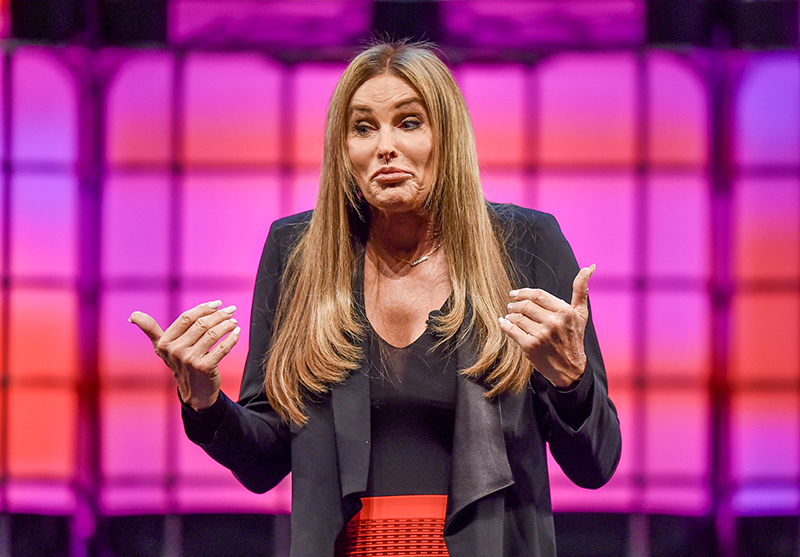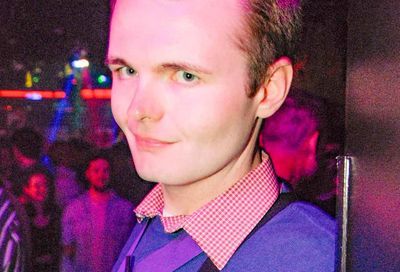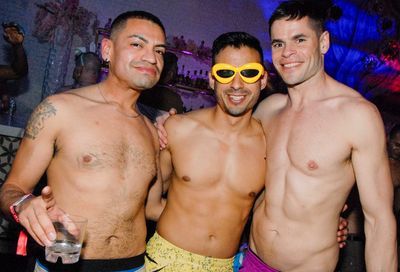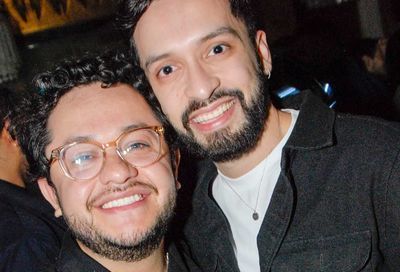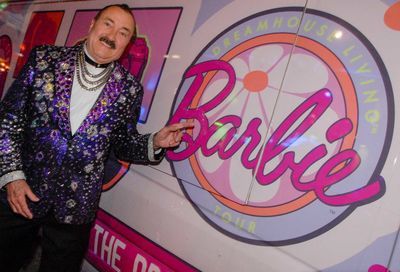Mighty Real: Janet Mock
With her new memoir, ''Redefining Realness,'' Janet Mock shares her journey as a transgender woman with honesty, eloquence and without apologies
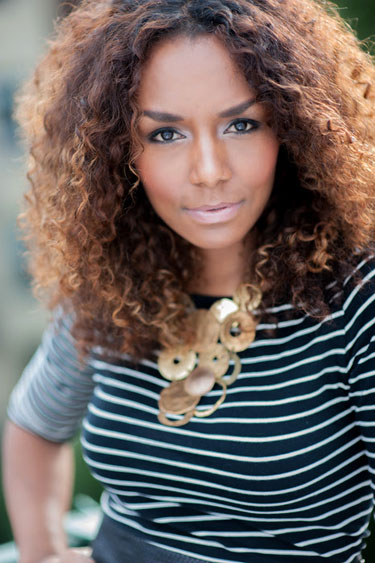
Janet Mock
(Photo by Aaron Tredwell)
MW: There’s also this sense of privilege you express through your story. I was expecting to read that you came from some wealthy family. But that’s not the case at all. You were writing about privilege, and I was reading about dysfunction and a broken home.
MOCK: When we talk about privilege, a lot of people get scared of that. They get defensive. But we all have slices of privilege. The more cognizant we are of that, the easier it is to understand and relate to other people who may have bigger stacks against them, bigger hurdles.
The one thing I often get dismissed about is the way that I look. Everyone just loves to obsess a little bit about the way that I look and how that has granted me access to things, made my life so much easier. To a certain extent, I understand that. I understand I have a sense of privilege, that most people who see me accept me as a woman — until I disclose I’m trans, and then they kind of change a little bit. But it was an exercise for me to say, yes, there were some privileges in my life that have helped me.
It may be the interaction of having friends who got kicked out. When they were on the streets, they weren’t just earning money for hormones and a surgery fund. They were earning money for rent and food. I didn’t necessarily have to think about that too much. Yes, we got to homelessness, we dealt with poverty, but my mom was able to get a job eventually and get us set back up.
I was always cognizant that someone might have it — not “worse,” because I don’t want to play “Oppression Olympics” [Laughs.] — but there is a sense of understanding that we have different experiences of access and exile. The access I had was a school environment. I thrived in school. My educational privilege was just being naturally “gifted,” in a sense. The media machine of “Janet Mock” says, “Oh, look, this trans woman of color can make it through, so it’s super possible for everyone to do that!” I wanted to break it down a little bit and say this is the real story of my life. And it is possible, but it takes a lot of little
bitty steps to champion this child through, because there are huge hurdles. Huge hurdles.
MW: Like, for some, being kicked out of their homes, as you mentioned, though you were not.
MOCK: That’s a big one. My parents were messy. My family was messy. I think a lot us grow up in messy homes. [Laughs.] And then we’re told to clean it up once you get a little big of class privilege, clean it up a little bit and present respectably and move on with your life. I wanted to open those things up so people could see it wasn’t as ideal as people like to make it seem sometimes.
MW: But even when you’re writing about what you had to go through, the sex work, the illicit photo shoot, as a reader it comes off as impressive. I didn’t read privilege or seediness, just strength.
MOCK: When I can separate that girl in the book from my 30-year-old self who had to armor-up, suck it up and say, “This is what you need to do to get to the next step,” I understand that force that’s propelling her through. But I can talk about her as a character. It’s like, “Oh, yeah, that girl was brave. I can appreciate that girl and what she had to do to get to the next step for herself, to achieve her sense of freedom within herself and her body.” So, yes, there is pride there. I can see it in the sense of the character, but when I see it as me it makes me feel kind of icky.
MW: Have you had any second thoughts about how forthcoming you are in sharing your story?
MOCK: I went through all that in the writing process. This book was three years in the making.
At first, it was hard just telling myself the truth when I started writing the book at 27. That was already a lot. Then, okay, how do I make it understandable to a literary agent? And then sharing it with him. Then choosing an editor and a publisher, then going through the process of shaping what this book is going to look like. Then sharing it with my first readers, my inner circle, my friends and all that. And then going to famous people to get blurbs, then reviewers, then going to the media and then going to the public. I had many different chances at disclosing and sharing these truths — these hard truths. It may seem like, “Oh, my God, it’s all just out there!” But I’ve had years to get comfortable with that. I’m still getting comfortable with that.
MW: I’ve read stories of other transgender people, but getting the perspective of a teenaged transgender girl in the 1990s was new to me.
MOCK: That era, the sense of time and place, is important. I was able to navigate a system that had already been built by other trans women who were around and had done this. The medical field was there and it was available in such a way that poor trans women could access it. I could access a doctor in Honolulu who would give us medicine without prescription or without health care, without insurance. So I got incredibly lucky in that the system was built decades before me.
I also think that intersection of youth is important. Many of the stories tend to be of older trans people. Navigating school systems, navigating so many different systems that push queer kids and trans kids out, it’s hard. I don’t know exactly what my resolve was in the sense of saying, “I’m going to stay in school, do well in school, and then also transition and pick a scholarship and go to college.”
In my reflection on all that, I think it was other people’s stories that propelled me through, to think that was possible — and also this sense that I get to determine who I am. No one gets to do that for me. That’s my right to self-define and realize myself. It’s mine. No one gets to tell me that I can’t do that. That was something that was very much ingrained in my mind as a very young person. I think a lot of that had to do with interactions with my parents, watching them as a young person who had no agency. As a child, people can pick you up and put you somewhere and you have no voice, no say in the matter. For me, there was a point where I just couldn’t.
Support Metro Weekly’s Journalism
These are challenging times for news organizations. And yet it’s crucial we stay active and provide vital resources and information to both our local readers and the world. So won’t you please take a moment and consider supporting Metro Weekly with a membership? For as little as $5 a month, you can help ensure Metro Weekly magazine and MetroWeekly.com remain free, viable resources as we provide the best, most diverse, culturally-resonant LGBTQ coverage in both the D.C. region and around the world. Memberships come with exclusive perks and discounts, your own personal digital delivery of each week’s magazine (and an archive), access to our Member's Lounge when it launches this fall, and exclusive members-only items like Metro Weekly Membership Mugs and Tote Bags! Check out all our membership levels here and please join us today!





